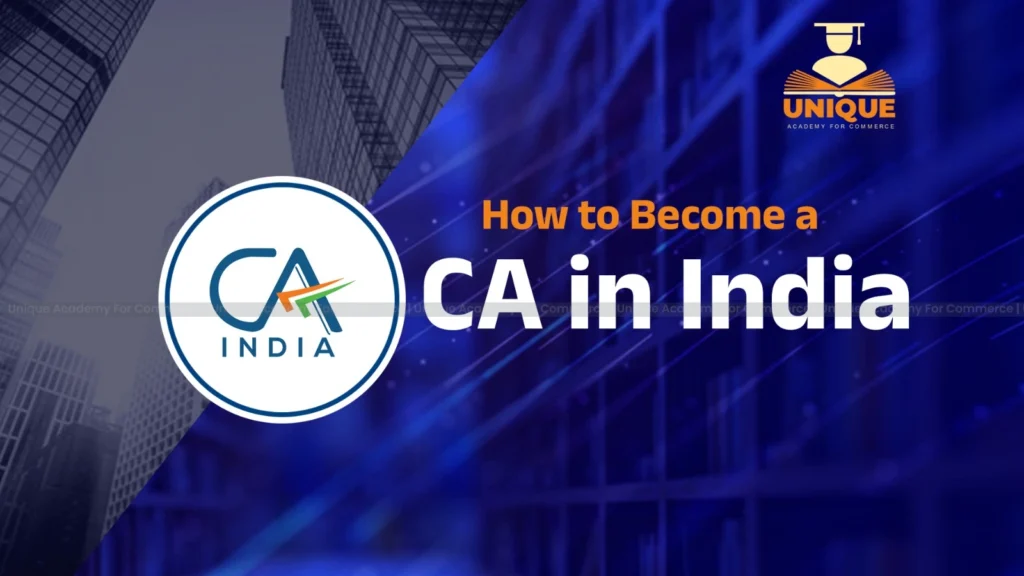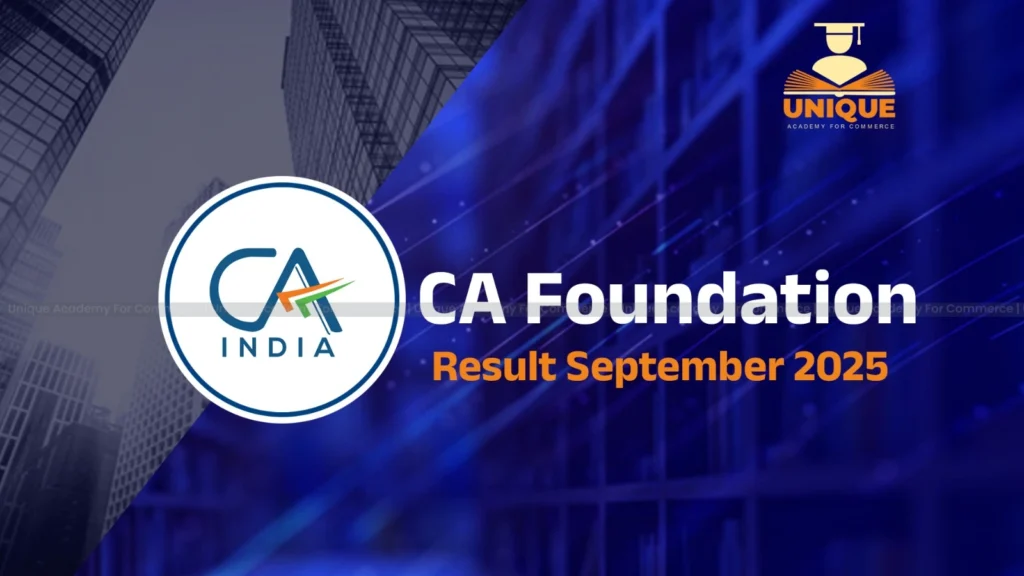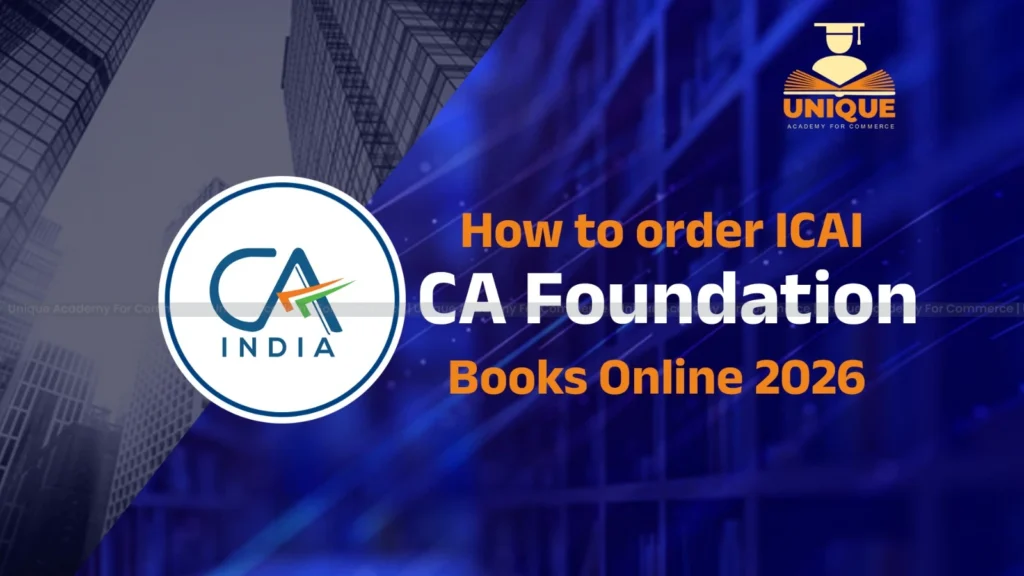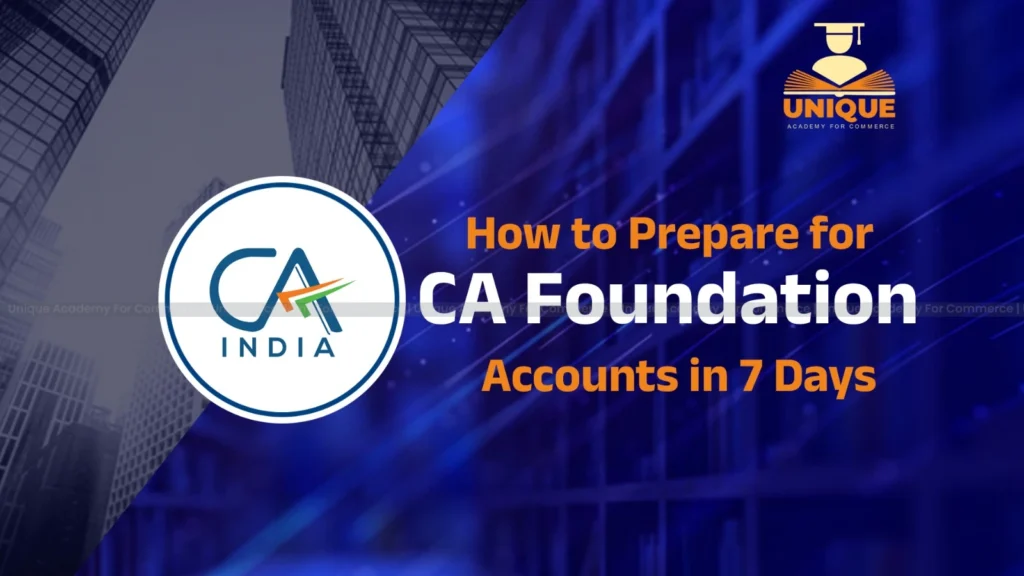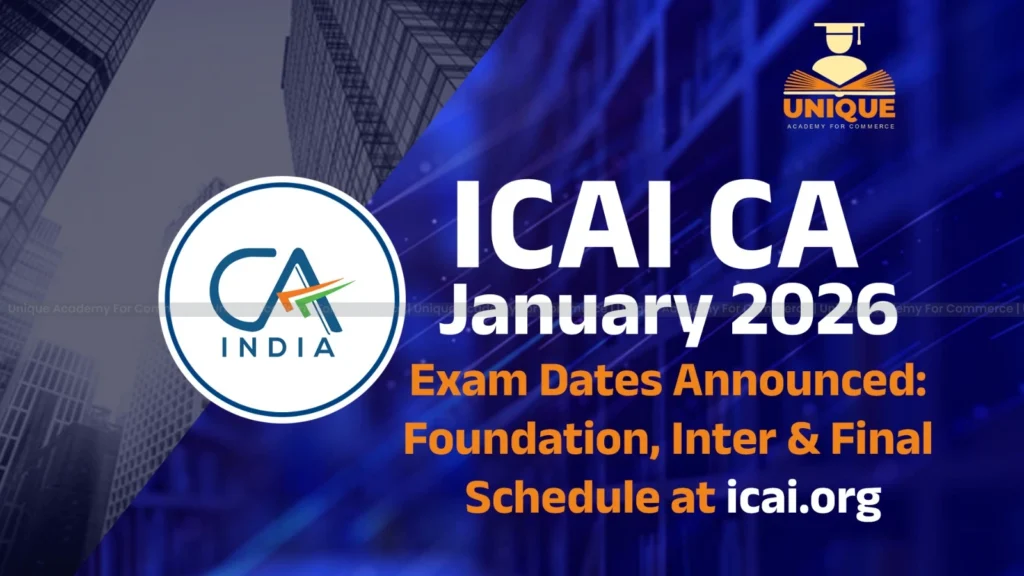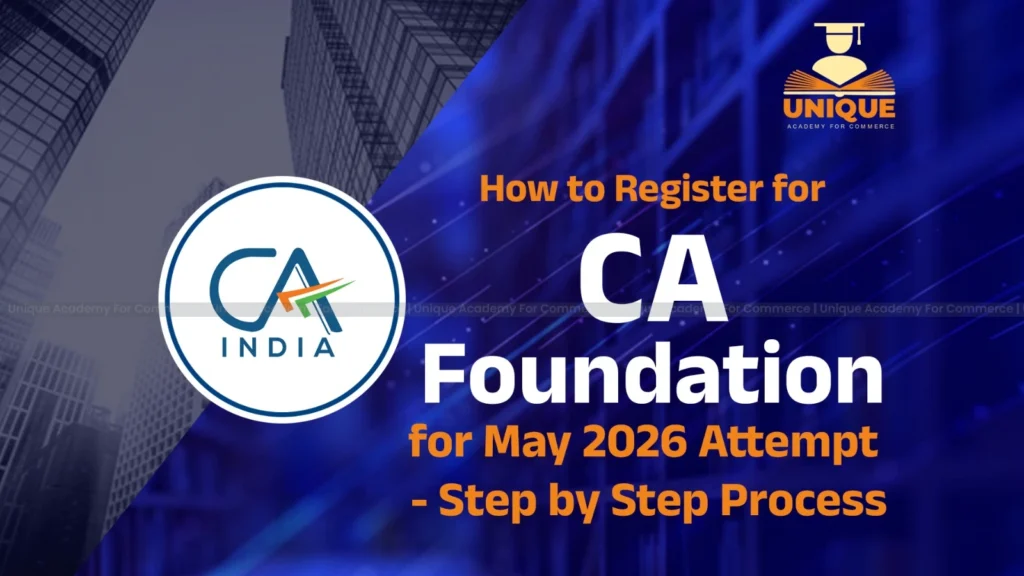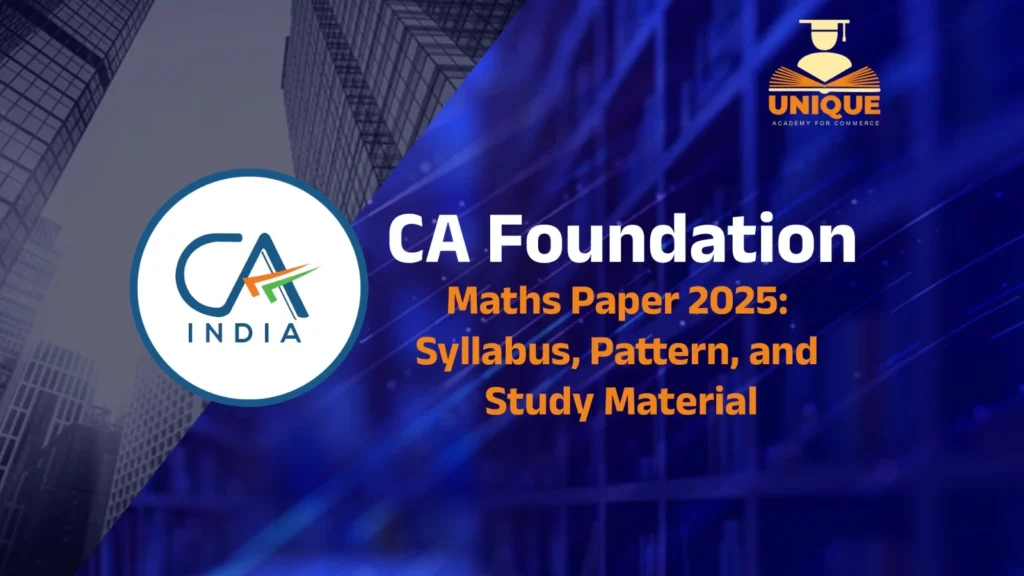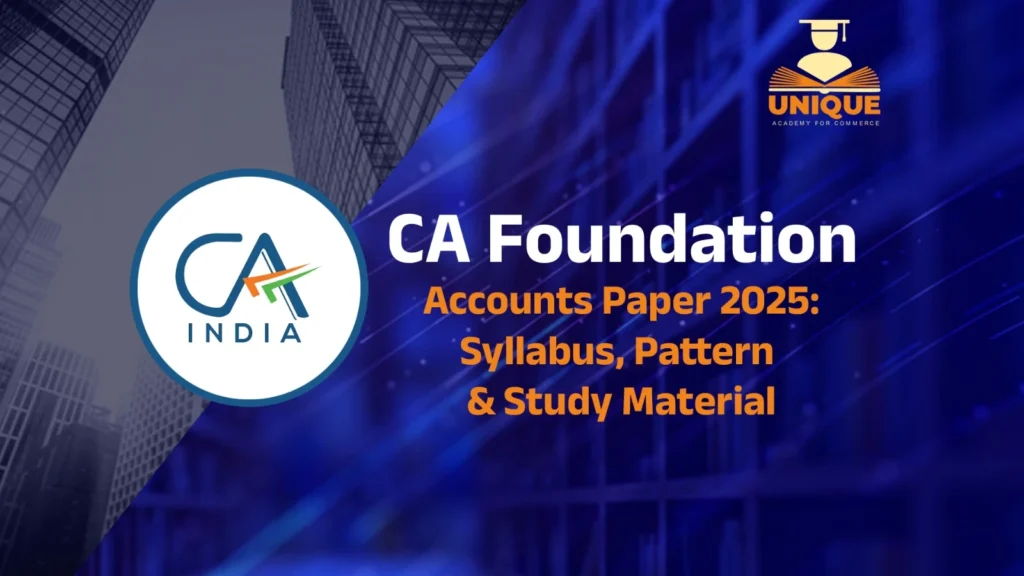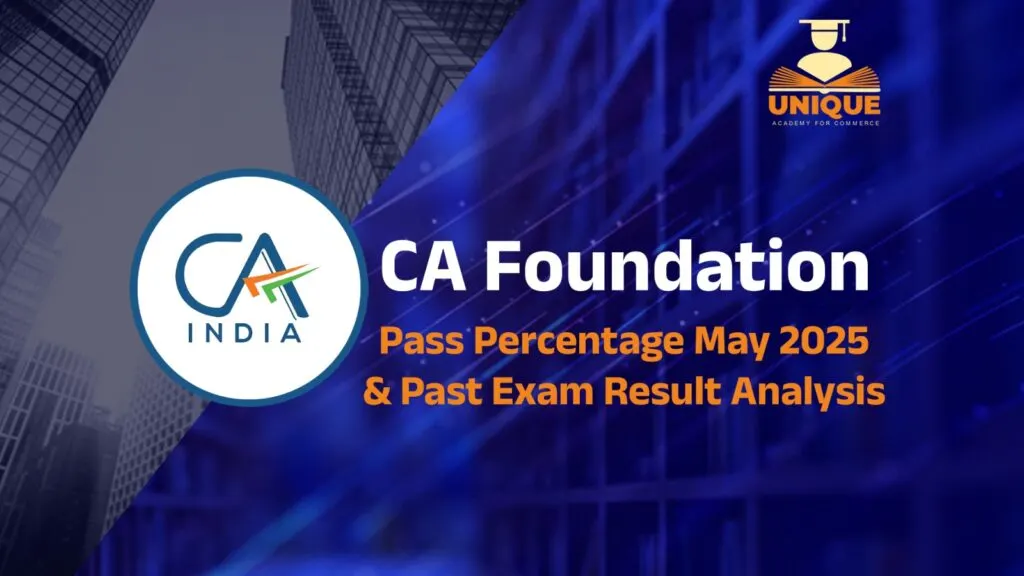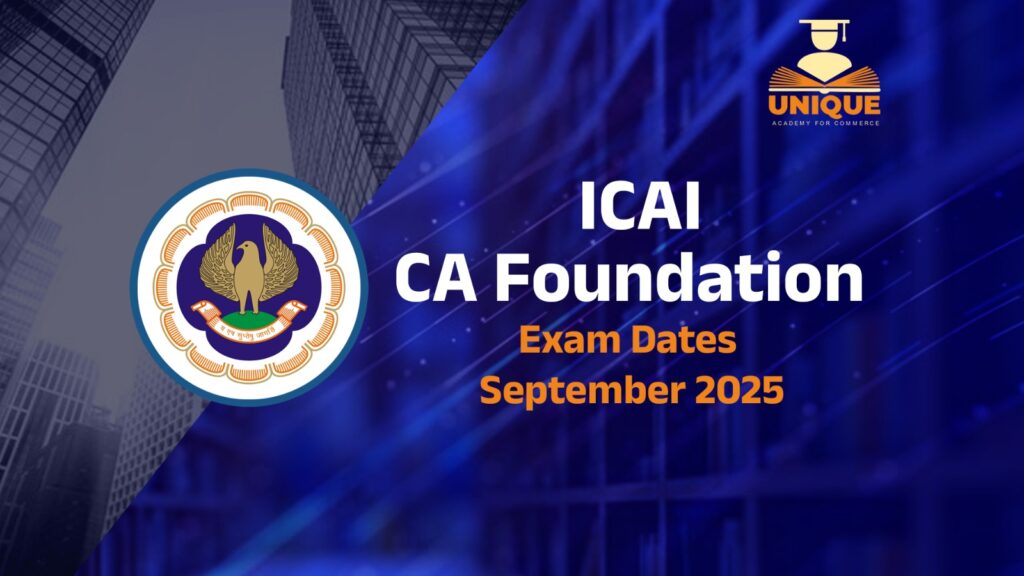CA Foundation May 2025 Subjects Complete Course on Accounts and Economics Subjects
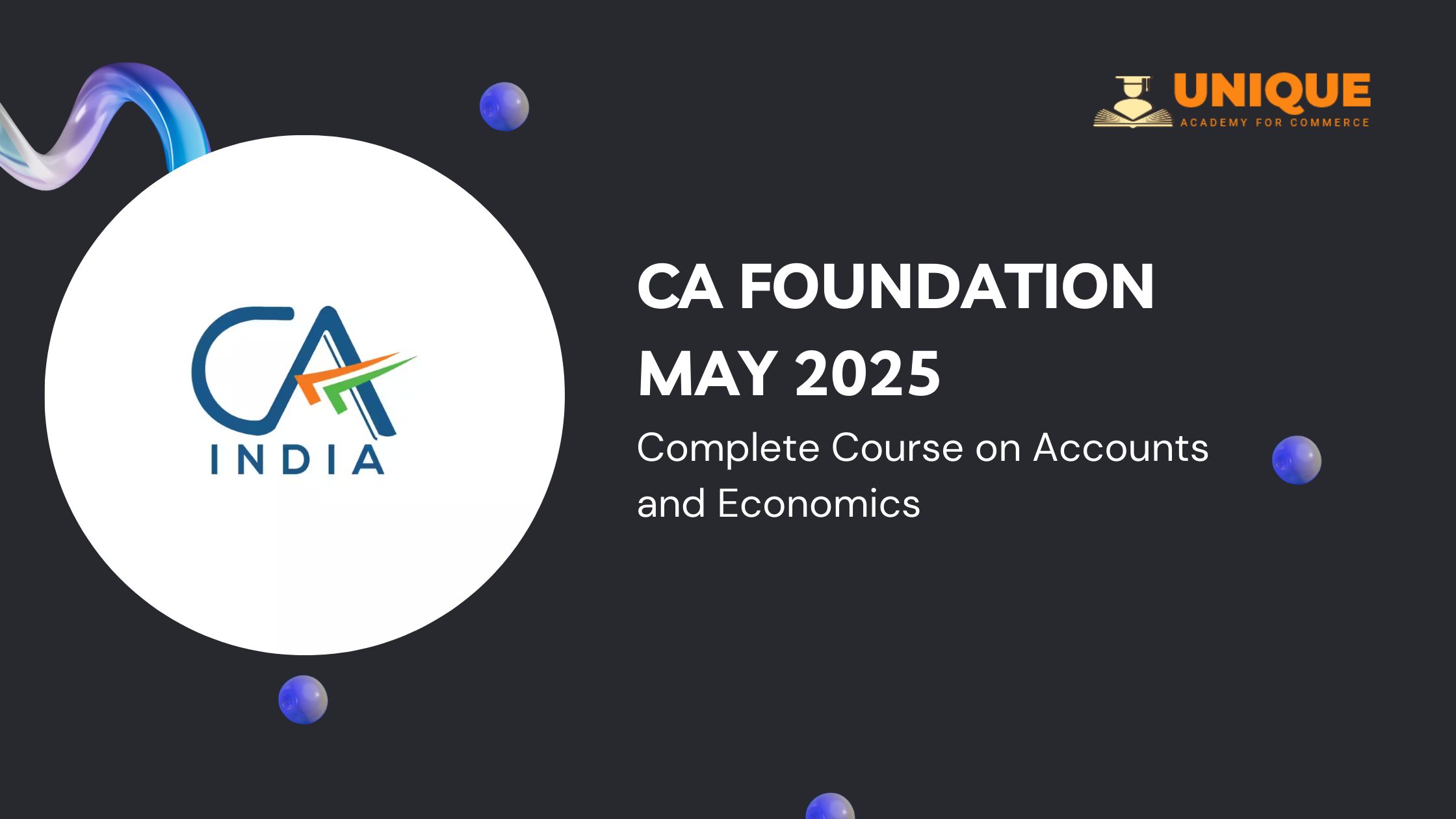
The CA Foundation Examination is the entry point to your Chartered Accountancy program, conducted by the Institute of Chartered Accountants of India (ICAI). ICAI revised the syllabus for all the levels including the CA Foundation with effect from July 1, 2023, owing to the new Scheme of Education and Training.
From June 2024, this new syllabus will be applicable. Thus, it is necessary for the students to learn about the topics who are going to appear for the May/June 2025 CA Foundation Exam.
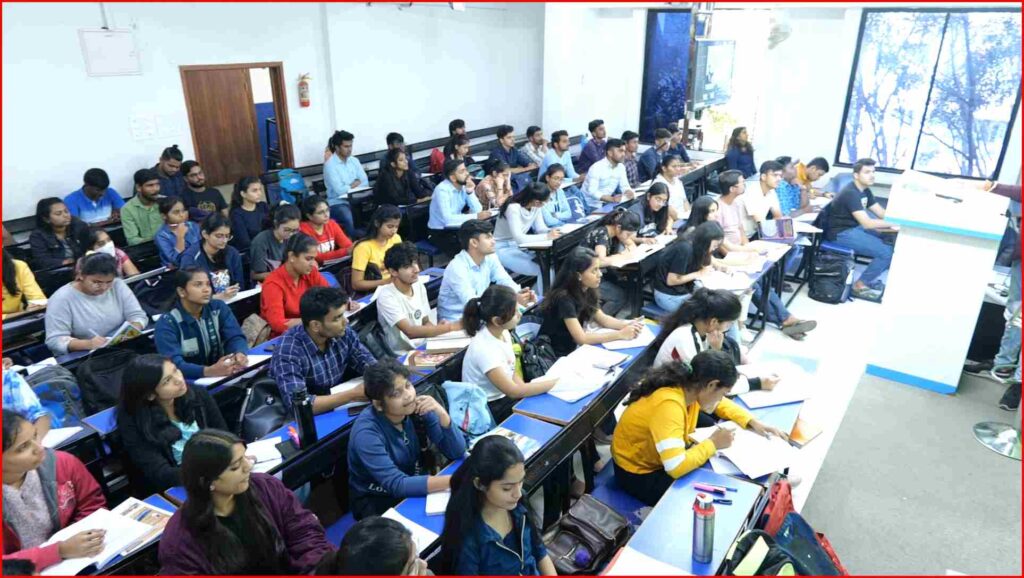
(this image is copyright by Unique Academy For Commerce)This article will give a good understanding of the CA Foundation syllabus Accounts and Economics Subjects, focusing on the core subjects of Accounts and Economics Subjects, and sets out the applicable framework of the examination, marking scheme, and preparation strategies.
Introduction to the CA Foundation Exam
The CA Foundation Exam was formerly known as the Common Proficiency Test (CPT). It is a national level exam held three times in a year, i.e., in January, May/June, and September. The paper-based test is the first test for those students who aspire to become Chartered Accountants.
Exam Layout and Key Issues
Test Format:
Four papers in total, each carrying 100 marks.
Papers 1 and 2 explain things, while Papers 3 and 4 are based on facts.
Total marks: 400 (100 marks for each paper).
Duration:
Descriptive papers: 3 hours each.
Objective papers: 2 hours each.
Marking Scheme:
No negative marking for Papers 1 and 2.
Negative marking of 0.25 marks is applicable for each wrong answer in Papers 3 and 4.
Language Options:
You can take the exams in Hindi or English, but Section B of Paper 2, Business Correspondence and Reporting, has to be answered in English.
CA Foundation Accounts and Economics Subjects Syllabus Overview
The CA Foundation new syllabus seeks to create a strong foundation in significant subjects such as Accounting, Economics, Business Laws, and business math. Let’s now discuss Accounts and Economics Subjects sections in detail, which are critical for the exam.
1. Principles and Practice of Accounting
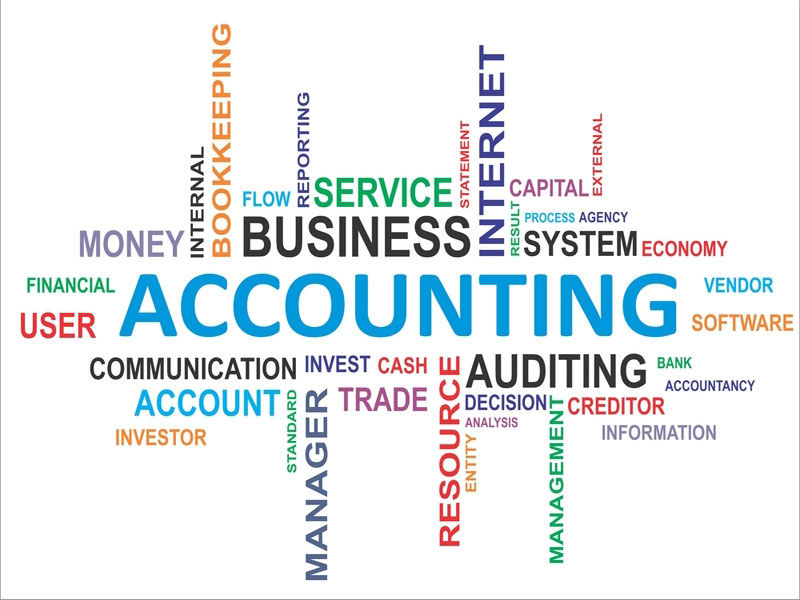
Accounting is very important for both financial reports and analysis. This subject teaches the basics of accounting and provides students with very important ideas and practical skills.
Module 1: Simple Rules and Steps for Accounting
Theoretical Framework:
- Know what accounting means and what it covers.
- Learn about the fundamental accounting ideas, rules, and practices such as consistency, prudence , going concern.
- Distinguish between capital and revenue expenditures or receipts.
- Investigate contingent assets/liabilities and their accounting policies.
Accounting Process:
- Understand basics on which accounts are made such as journal entries, ledger posting, and preparation of a trial balance.
- Learn how to use subsidiary books and cash books and rectify errors.
Main Subjects in Module 1:
- Bank Reconciliation Statements: Learn how to make reconciliations between cash books and bank statements correct.
- Inventory Valuation: Study methods like FIFO and weighted average to calculate inventory values.
- Depreciation and Amortization: Learn about the straight-line method (SLM) and the written down value (WDV).
- Final accounts: For sole proprietors, prepare final accounts that include both profit and loss statements and balance sheets.
Module 2: More Complex Accounting Ideas
Financial Statements for Not-for-Profit Groups (NPOs)
- Learn how to prepare receipts and payments accounts, income and expenditure accounts, and balance sheets.
Accounts from incomplete records
- Understand how to prepare financial statements when only partial information is available.
Partnership Accounts
- Basics of partnership principles.
- Goodwill: Goodwill is calculated and brought to account during the admission, retirement, or death of a partner.
- Accounting in case of dissolution of partnership businesses.
Company accounts
- Fundamental to company accounting is the issue, forfeiture, and reissue of shares.
- Learn about debentures, bonus shares, rights issues, and how to redeem debentures and preference shares.
2. Business Economics
Business Economics relates theoretical concepts with practical life. It helps the student understand how markets work, economic rules, and how these influence business decisions.
Introductory chapters and topics:
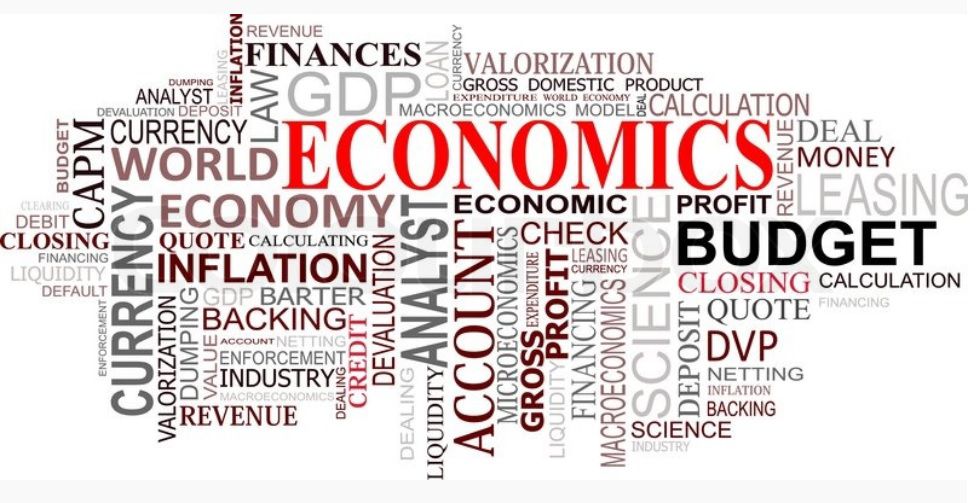
- Nature and Scope of Business Economics:
- Introduction to the major issues of an economy.
- Role of the price mechanism in solving these problems.
The Theory of Demand and Supply:
- Understand the law of demand, elasticity, and factors that influence demand.
- Analyze consumer behavior based on indifference curves and utility analysis.
- Explain the law of supply and its elasticity.
Theory of Production and Cost:
- Output functions, returns to scale and costs classifications are learned.
- Analyze short-run and long-run cost behavior.
Markets Structure and Price Determination:
- Discuss the following types of markets: perfect competition, monopoly, and oligopoly.
- Understand the price-output equilibrium when conditions shift.
Macro Concepts:
- Measurement of National Income Methods National Income Determination of National Income by the Keynesian Method.
- Public Finance: Understanding Fiscal Policies, Taxes, and Govt. Expenditure.
- Money Market: Discuss demand and supply theories of money, and how monetary policy acts as an intermediary.
International trade:
• Explain some of the elementary trade theories and exchange rate theories and how they work together in an economy.
- Research of Negotiations on Trade Rules.
Indian Economy
Preparation Guidelines for May/June 2025 Exam CA Foundation Syllabus.
1. Level out the study hours across topics. Focus and work even harder on topics like Partnership Accounts, Elasticity of Demand, etc.
2. Continued practice: Old question papers and practice tests are used to increase speed with accuracy and time management.
3. Objective Papers-Pay emphasis on objective papers. The last two papers, 3 and 4, carry negative marking. Attempt all MCQs with cent percent accuracy.
4. Using ICAI resources: Study materials, test papers and past revision test series are available on official website of ICAI.
5. Follow-up: The new syllabus or change, if any, at www.icai.org.
Conclusion:
The syllabus under May 2025 CA Foundation is rather practical, which will enable the students to perform well in their examinations and raise challenging standards that the Chartered Accountancy profession expects from them.
It covered Accounting Principles and Business Economics along with other subjects very important for developing knowledge as well as practical skills. Therefore, they will feel bold in making preparations for the CA Foundation Exam, and accordingly they would make the best plan of studies while taking on the syllabus with excellent understanding.
Stay connected with our page for future updates. – https://uniqueacademyforcommerce.com/ca-foundation/





